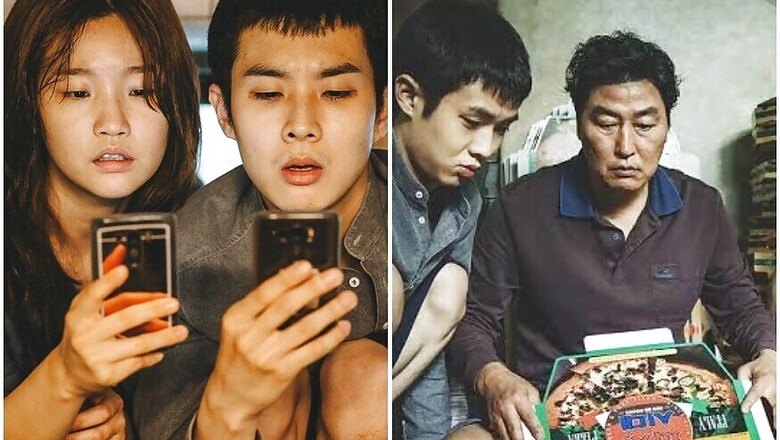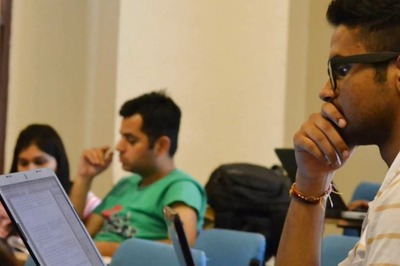
views
Time was when there was just one international movie festival in India, and it happened every January in Delhi's lovely Siri Fort with its sprawling complex and green, grassy lawns. But the International Film Festival of India or IFFI as it was called also travelled, pitching its tent, so to say, in a different city every other year. This gypsy existence of course led to administrative headache. And, happily, IFFI stopped being a wanderlust in 2004, and settled down in Panaji.
But some people were not quite happy: those festival fans who lived in Delhi or cities where IFFI travelled were clearly peeved. They did or could not go to Panaji. This led to many smaller festivals emerging. We have one in Mumbai, in Pune, in Bengaluru, in Thiruvananthapuram, in Guwahati, in Kolkata and in Chennai. Each is growing. Chennai too.
The 17th edition of the Chennai International Film Festival opened on December 12 with South Korea's Parasite – a 2019 Cannes Palm d'Or clincher. By far Bong Joon-Ho's best work till date, Parasite lambasts class differences and cruelty in what is a deeply divided society. Interestingly, the movie is a roller-coaster ride with wit rubbing shoulders with tragedy. It is almost Shakespearean, I would think.
The Festival in Chennai may not have complex like the Inox in Panaji or the Siri Fort, and most of the screening theatres are not top class, but there are some good films from 55 countries.
There is the German entry, Bra, a funny subject with an engine driver on his last ride before retiring from work sees a bra flying into his cabin, and he makes it his mission to find the owner!
The French work, Portrait of a Lady on Fire, is a period piece set in the Brittany of 1770. It is a sparkling canvas, a virtual painting in which an artist is assigned to draw the portrait of a woman who has just left the convent to get married. She is reluctant to walk up the aisle, and the painter's task gets all the more difficult, because she has to go about her work without the bride's knowledge.
Another Festival highlight is Mehdi M Barsaoui’s A Son from Tunisia. At 96 minutes, it explores the trauma a family returning from a day-long picnic faces. Set in the summer of 2011, six months after the Jasmine Revolution and the fall of Tunisian president, Zine El-Abidine Ben Ali, but before the death of the former Libyan leader, Muammar Qaddafi, the movie profiles a family as it is hit by a hail of bullets from militants. The family's 11-year-old son is critically injured, and at the hospital, his mother and father have to confront a cruel truth. The climax is extremely striking.
We have from Brazil Divine Love, which traces the journey of a 42-year-old woman, who uses her position in a notary’s office to advance her mission to save struggling couples from divorce.
Apart from these, the Festival has on offer sections on Indian Panorama (with titles like Uyare, Amori, Mai Ghat: Crime No 103/2005 and Netaji among others), Tamil Feature Competition (House Owner. Asuran, Seethakathi, etc), Contemporary German Films and Country Focus- Hungary.
Yes, there have also been misses, some brilliant works – Dardenne Brothers' Young Ahmed (a ripping look at divisiveness), Hirokazu Kore-eda's Venice entry, The Truth in French, Ken Loach's Sorry We Missed You (the brutality of commercial firms) and Elia Suleiman's It Must Be Heaven (pure cinema).
The Festival runs till December 18.
(Gautaman Bhaskaran is author, commentator and movie critic)



















Comments
0 comment